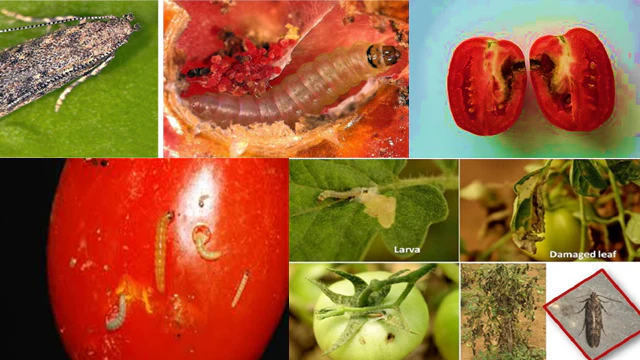
In a sobering revelation that underscores the deepening fragility of Nigeria’s food ecosystem, the Federal Government has confirmed a staggering ₦1.3 billion loss to the destructive Tuta absoluta pest—infamously dubbed “Tomato Ebola”—in just three states: Kano, Katsina, and Kaduna.
The outbreak, which has devastated tomato farms across these agricultural powerhouses, was disclosed by the Minister of Agriculture and Food Security, Senator Abubakar Kyari, during a strategic capacity-building workshop for financial institutions in Abuja. The workshop was convened by HortiNigeria, in partnership with NIRSAL Plc, to galvanize investment and risk-sharing mechanisms for Nigeria’s embattled horticulture sector.
A Pest with a Billion-Naira Bite
Tuta absoluta, a fast-reproducing and invasive pest, is capable of wiping out entire tomato fields within 48 hours, leaving farmers in ruins and markets in turmoil. The impact has been swift and punishing: the price of a 50kg basket of tomatoes has soared from ₦5,000 to over ₦30,000 within weeks, triggering widespread food inflation and hammering already stretched household budgets.
According to Kyari, this crisis isn’t just a rural agricultural issue—it’s a national food security emergency. “Tomatoes and peppers are foundational to Nigerian cuisine. When these staples experience shocks, the cost reverberates across restaurants, canteens, markets, and kitchens nationwide,” he warned.
The 2024 NBS Food Price Index validates this concern, with tomatoes recording a 320% year-on-year price surge, followed closely by peppers and other fresh produce—figures that portend trouble for Nigeria’s inflation outlook and consumer purchasing power.
Horticulture: Nigeria’s Sleeping Economic Giant
The minister did not mince words about the implications. Nigeria’s horticulture sector, he noted, is a “sleeping giant”—a high-potential yet undercapitalized engine for job creation, nutrition, rural transformation, and export diversification. Unlike staple grains, which have long cycles and lower margins, horticulture boasts:
- High value per hectare—ideal for smallholder commercialization
- Shorter production cycles—enabling multiple harvests annually
- Year-round employment—especially for women and youth
- Linkages to processing, retail, and export markets
- Climate resilience—through irrigation and protected cultivation systems
“These attributes make horticulture a frontier for agricultural transformation and economic renewal, especially in a country grappling with unemployment, food inflation, and malnutrition,” Kyari said.
Why Financial Institutions Must Wake Up
A core theme of the workshop was financing innovation. Kyari challenged banks and lenders to move beyond generic agriculture credit products and to map the horticulture value chain from seed to shelf. He called for:
- Seasonal credit lines tailored to crop cycles
- Equipment leasing facilities for irrigation and cold storage
- Invoice discounting and trade finance tools to ease working capital pressure
- Digital micro-loans and insurance to de-risk lending to smallholder farmers
He emphasized that financing horticulture isn’t just about planting more crops—it’s about building an inclusive, climate-smart value chain that can deliver nutrition, employment, and growth at scale.
Strategic Imperatives for Policymakers and Investors
The Tomato Ebola outbreak is more than a pest problem—it’s a wake-up call for Nigeria’s food policy, agritech adoption, and public-private collaboration. Experts argue that without integrated pest management systems, investment in resilient seed varieties, and early warning systems, Nigeria risks sliding further into food insecurity.
With over 200 million mouths to feed and urban demand for fresh produce rising, the time to scale horticulture isn’t tomorrow—it’s now.
BRANDECONOMY Insight
Verdict: This Tomato ‘Ebola’ crisis may sting today, but it can be a springboard for transformation—if Nigeria gets serious about horticulture. The ₦1.3bn loss is not just about tomatoes rotting in Kano—it’s a broader symbol of policy inertia, poor risk management, and underfinancing in an agribusiness goldmine.
Nigeria has the climate, the land, and the market to build a ₦1 trillion horticulture economy. But without fit-for-purpose financing, smarter pest control, cold chain infrastructure, and stronger market linkages, the sector will remain a missed opportunity.
For agripreneurs, this is your moment. For banks, this is your pivot. And for policymakers, this is your litmus test.











